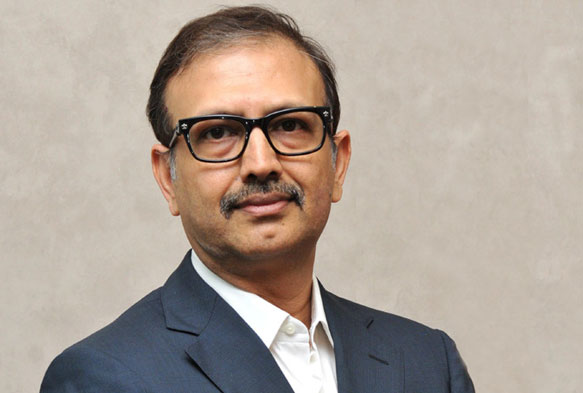
Note From President Vineet Bhatnagar
Earlier this week, I was acquainted with the theme of Rotary International for the next year – Create Hope in the World. Upon reflection, I realised how powerful these words are. “Hope” is an abstract noun but “Create Hope” makes it an action verb. A deliberate attempt to capture the essence of what is created through the volunteering efforts of millions of Rotarians and Rotaractors.
Hope – is it merely a feel-good factor? Is it just wishful thinking about an outcome or a future event? We often
confuse optimism with hope. But hope is to see the desired goals as possibilities and approach them with “agency thinking,” a belief that one has the ability to achieve the goals. Psychologists call hope “pathways thinking,” a focus on mapping routes and plans to achieve those goals.
Optimism is different. It is a general expectation that good things will happen in the future. Optimists tend to seek out the positive and, at times, deny or avoid negative information. It is therefore about expecting good things;
HOPE IS ABOUT HOW WE PLAN AND ACT TO ACHIEVE WHAT WE WANT.
Optimists tended to seek out positive images, such as that of happy people, and avoid images of people who are sad. Hopeful people on the other hand do not necessarily seek out emotionally positive information but they spend less time paying attention to emotionally sad or discouraging information. This distinction drives hopeful people to
devise an action plan.
The differentiation between optimism and hope encourages me; the power of active citizenship which a Rotarian embodies with a guidance of placing service before self is aimed to bring about hope to the communities that we serve. This made me to consider ways in which we can deliberately cultivate hope for social good.
Start with some goals – do something. Hopeful people do not wish – they imagine and act. So, establish clear, achievable goals and make a plan. It is equally important to note that hopeful people do not assume that there will be no barriers, but they anticipate barriers and choose the “pathways” that improve the intended outcomes. People of hope persist even when prospects may not be favourable. Belief that one is capable of achieving one’s goals is more important for hope than knowing how to achieve them.
Allow hope to harness uncertainty. As hope is distinct from optimism, for hope to arise, we need to be able to perceive the possibilities of success in formulating or giving hope. So, uncertainty about the future should not
instil inaction. Instead, channel it into well thought through motivator of hope.
FINALLY, IT IS THE COMPOUNDING POWER OF COLLECTIVE ACTION THAT CAN MAGNIFY THE SCALE OF POSITIVE OUTCOMES. So, don’t go it alone. By making “Create Hope in the World” as the guidance for the coming year, Rotary is motivating its onthe- ground force of millions of members, all of whom are volunteers, to mobilise the power of hope.
Hope is hard to sustain in isolation. Rotarians who are working to bring social change are also the carriers and
givers of hope to the communities for multiple challenges – clean water, primary health & education, women empowerment, livelihoods for communities, preserving environment, championing equal rights and many other stated goals.
Creating hope also makes us consider a sense of responsibility and accountability; to recognise that our work mattered and that we can be a part of something bigger than ourselves. Sustaining hope is also vital. We can stay hopeful if we connect with others who hold us accountable and remind us of why our struggles matter.
CULTIVATING HOPE IN PEOPLE ALSO IMPLIES THAT WE HAVE THEIR TRUST AS WE INTERVENE IN THEIR COMMUNITIES AND LIVES.
FOR ROTARIANS, TRUST COMES FROM OUR PREVIOUS EFFORTS AND GOODWILL BUT AT TIMES IT IS THE CLARITY OF OUR PLANS THAT CAN ASSIST US TO ESTABLISH TRUST.
Cultivating and sustaining hope requires that we gather data about the outcomes of our actions so that we guide our
plans, pathways and actions more objectively. Hope requires that we learn to calibrate progress and study the
impact of our efforts, no matter how small. The way Rotary handled polio – systematically and methodically, over
many decades. But we became the hope of the world to eradicate this disease. Let us find more avenues to Create Hope in the World. Because we can.
— President Vineet Bhatnagar
